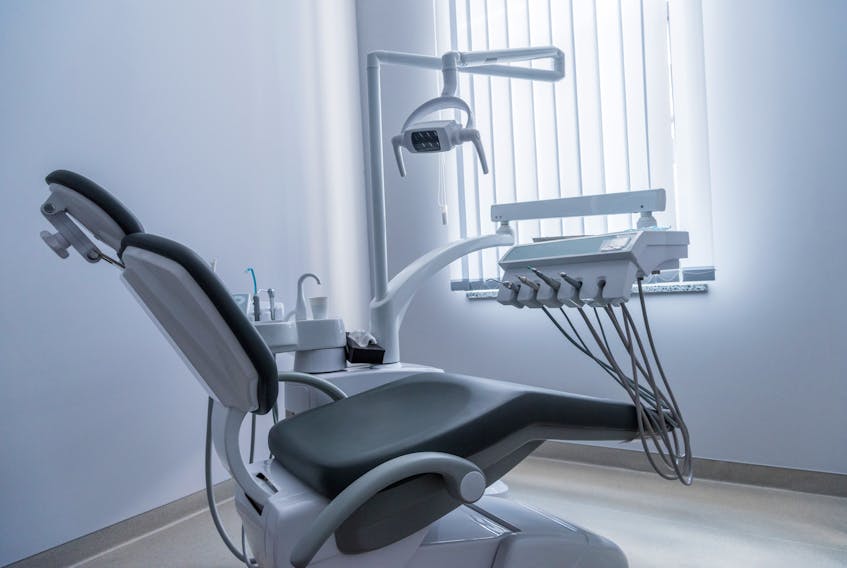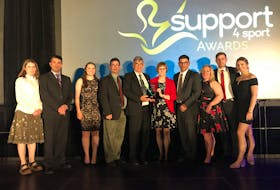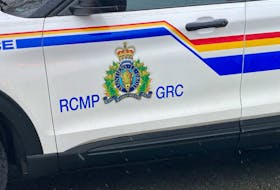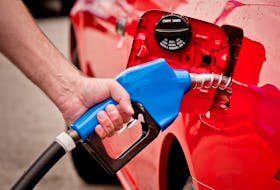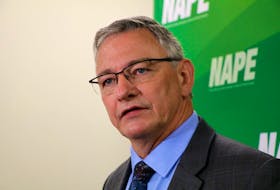ST. JOHN'S, N.L. — When someone has a nagging tooth problem or chips one, the next step is typically cut and dry — it's time to get in touch with a dentist.
While that is still the case, the COVID-19 pandemic has complicated matters somewhat when it comes to dental services. Last month, the Newfoundland and Labrador Dental Board ordered all dental offices in the province to close for regular dental treatment for two weeks. That closure remains in place, but dentists are seeing patients for emergency procedures.
Dr. Paul Hurley, president of the Newfoundland and Labrador Dental Association, said it is important for the public to know they can still contact dental offices. He cautioned that nobody should visit hospital emergency rooms to address dental issues.
"We have a pandemic plan, and it's well-defined that an emergency is something that's acute pain that can't be handled with over-the-counter medications," Hurley said. "It's an infection, trauma and/or bleeding. And that can be difficult for patients to assess sometimes. Everybody's idea of pain can be a little different, and you're also dealing with the cosmetics part of people's smiles. People's interpretations of what an emergency is can be different."

Assessing options
Dental offices in the province have staff taking calls and checking voice messages. Hurley said dentists will get back to the patient to discuss the issue at hand and decide what to do. The dentist may prescribe an antibiotic or painkiller or, in the event the situation is an emergency, arrange an appointment for the patient.
"I had a young fella call the other day that chipped a tooth," Hurley said, offering an example. "He fell off a bike and chipped a tooth. Well, a chipped tooth, it wasn't painful. … That doesn't have to be fixed right now. But if someone falls and actually breaks off a tooth or displaces a tooth or knocks it out, that is an emergency that a dentist has to see."
The protocol for patients coming into a dental office has changed considerably. Before coming to the office, the patient will need to answer a series of questions to ensure their presence is not going to compromise the health of office staff or the dentist.
"The typical ones. Have you travelled within the last 14 days? Have you associated with somebody who has COVID-19? Do you have any coughs or acute respiratory problems? That kind of thing. If the answer is 'No,' then we can see the patient."
When they arrive at the office, the setting will be considerably different from what patients are used to.
"We're dressed up head-to-toe in protective gear," Hurley said. "You're dealing with face shields, respirator (masks), eye protection, gowns — to see those patients. We're trying to avoid that, because we don't have a lot of personal protective equipment. We're trying to do things to avoid them coming into the office if we can."
Health and safety
Given COVID-19 is airborne, these measures are necessary to protect the health and safety of staff, Hurley said.
"It's more protective gear than we'd normally wear," he said. "Dentists are experts at sterilization, but this bug is new to the world, so it provides a challenge for us."
Hurley was only recently able to obtain the protective equipment necessary to work in his office in Stephenville.
"The big thing is that we need to let the people know that dentists are still available and to call their dental office for emergencies and to make sure if the patient is having an emergency, can we deal with it over the phone, and if not, they can come into the office — but there's a different protocol."
As a dentist, Hurley admitted it has been stressful dealing with the challenges the COVID-19 pandemic presents to their profession. He said dentists are used to treating patients in an efficient and timely manner.
"It's not something that I or any dentist is used to. We're used to striving for perfection in our treatment plans and if a patient calls up for an emergency, yeah, we'll fit them in. And we usually see them on very short notice. … Nobody really saw it coming as fast as it did."
@CBNAndrew

